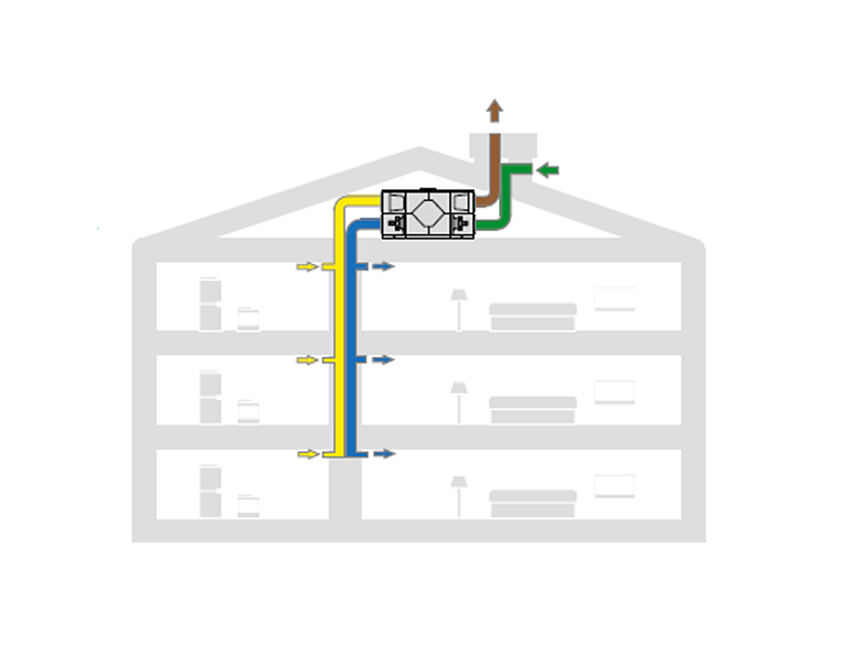Centralised supply and extract air systems
with heat recovery via heat exchangers, demand-controlled air flow
In schools, shopping centres and offices, demand-controlled ventilation is now the norm. With new behaviours and practices, ventilation requirements have changed for residential spaces too. Air-to-air heat exchange systems with demand-control now meet stringent requirements for both comfort and energy efficiency. Post-installation, the system runs automatically and each apartment is adjustable independently of adjacent apartments by means of a smart control panel. Each apartment’s control panel is connected to a centralised communications unit that deals with monitoring and settings. There are also options for connecting all the units to a master monitoring system.
Individually adjusted
The system offers the highest level of comfort for occupants and a healthy indoor climate for properties over the long term. The system is also very energy efficient to run, as the ventilation is individually adjusted for each apartment. Equally, the system meets strict requirements for air flow, draughts, noise and energy efficiency.
A mechanical fire protection unit can be installed for each apartment. This saves installation space for ductwork in stairwells, as no fire insulation is needed. Future servicing and maintenance can be carried out without the need for access to each apartment.


Advantages
- Balanced ventilation
- Reduced risk of draughts and noise
- Several heat exchange options
- Superior comfort with a guaranteed indoor climate
- Ventilates based on actual demand
- Integrated fire protection solution
- Smart total solution with compact dimensions
- Plug and Play
- Negative pressure compensation for cooker extractor hoods
- High-rate and effective heat recovery
Disadvantages
- Costlier installation than a standard air-to-air system
The Kajalen tower block’s stringent requirements for energy efficiency


